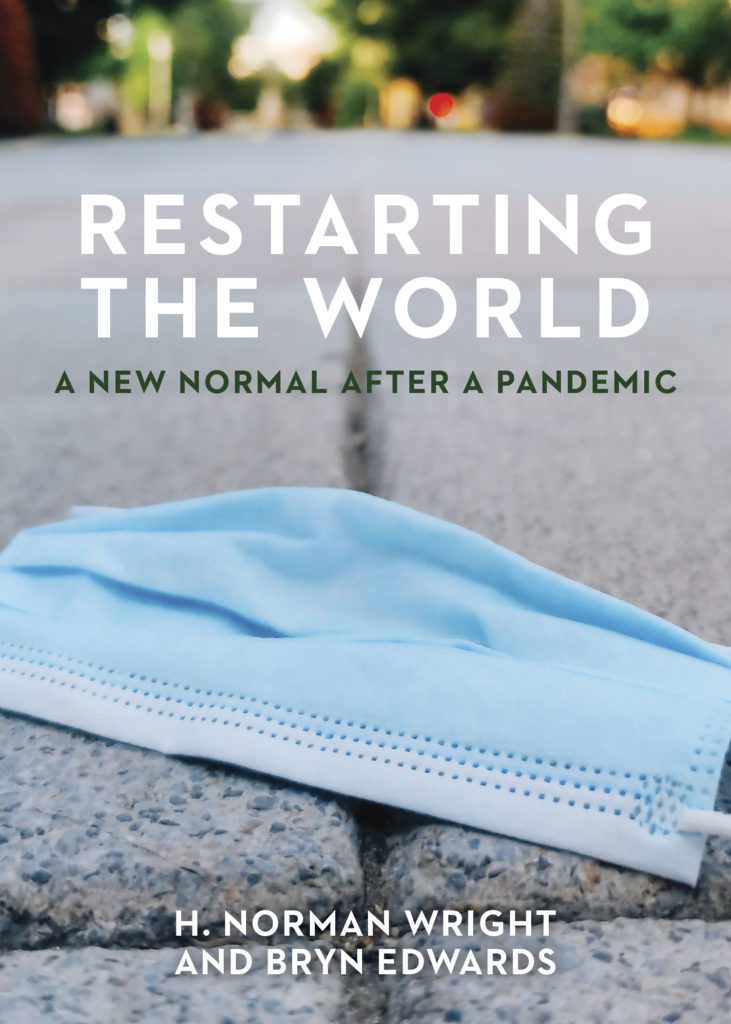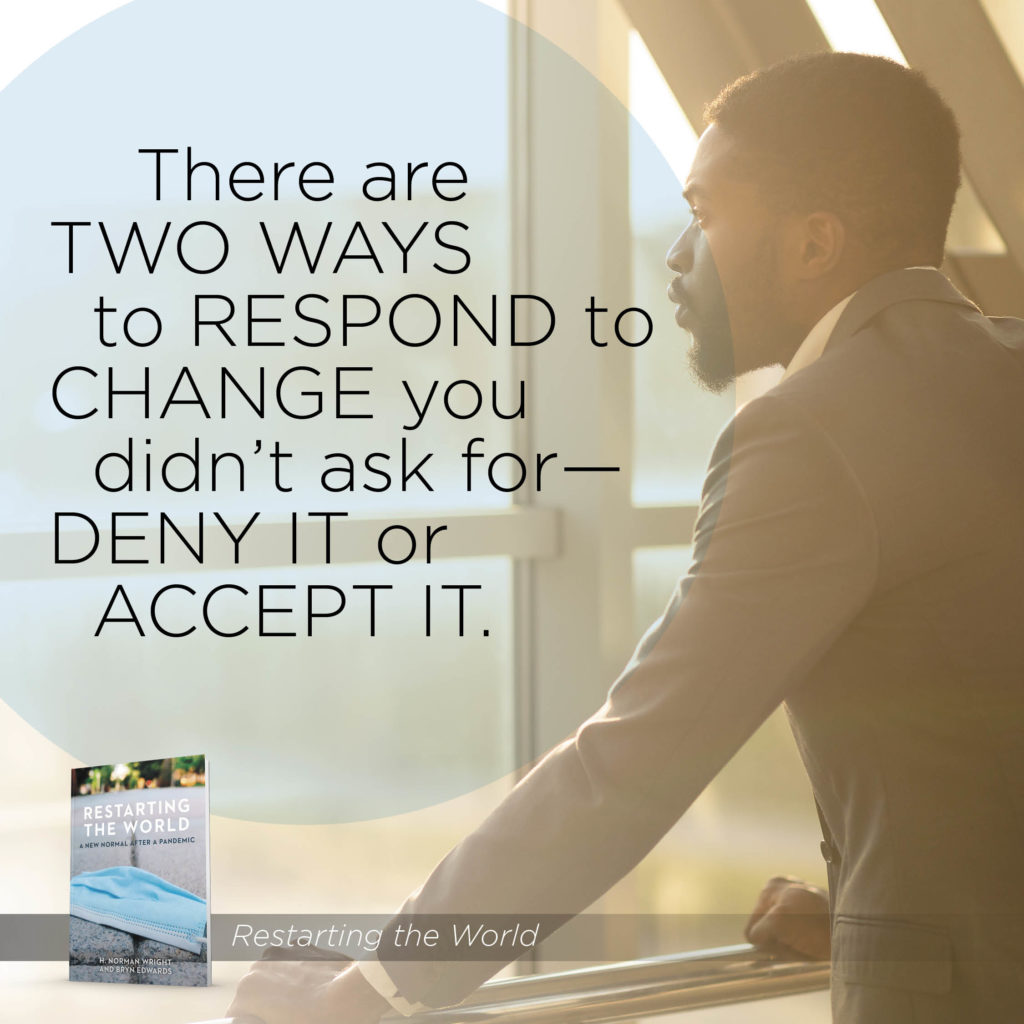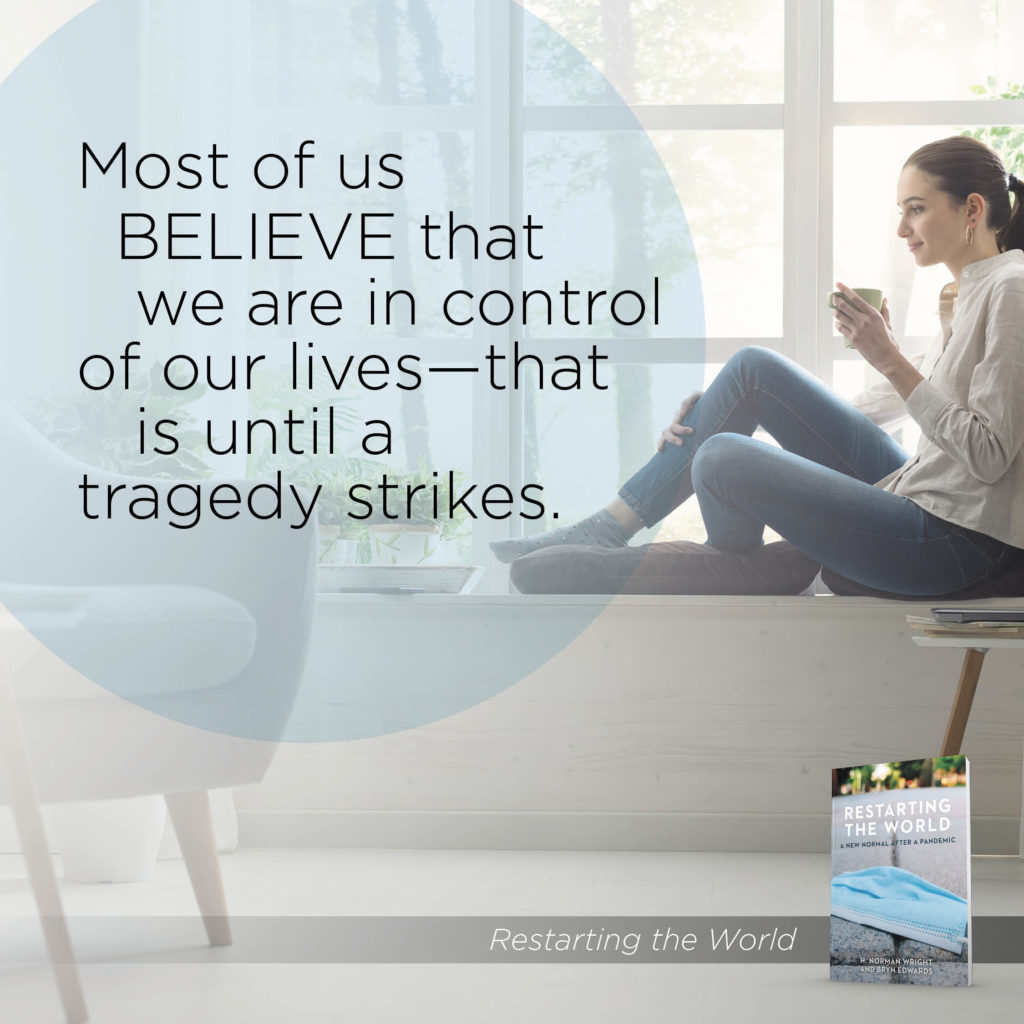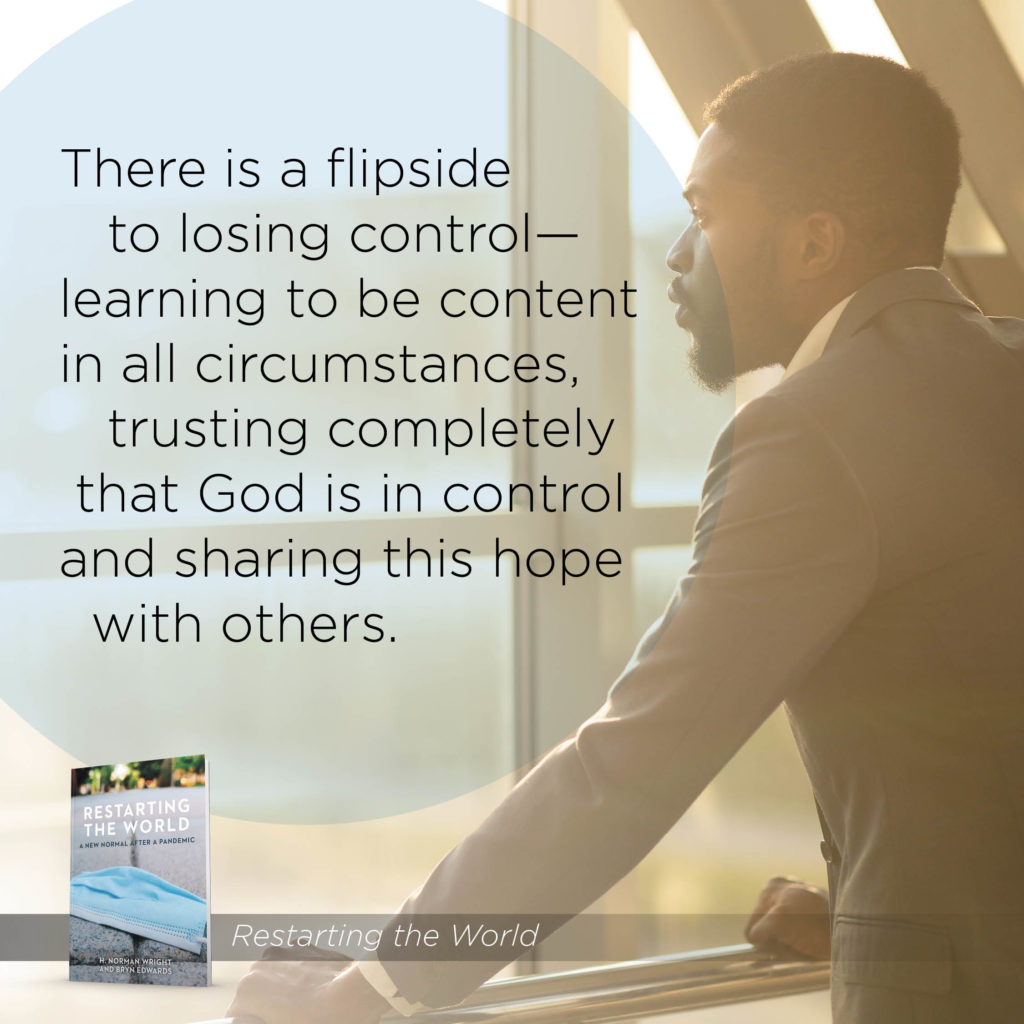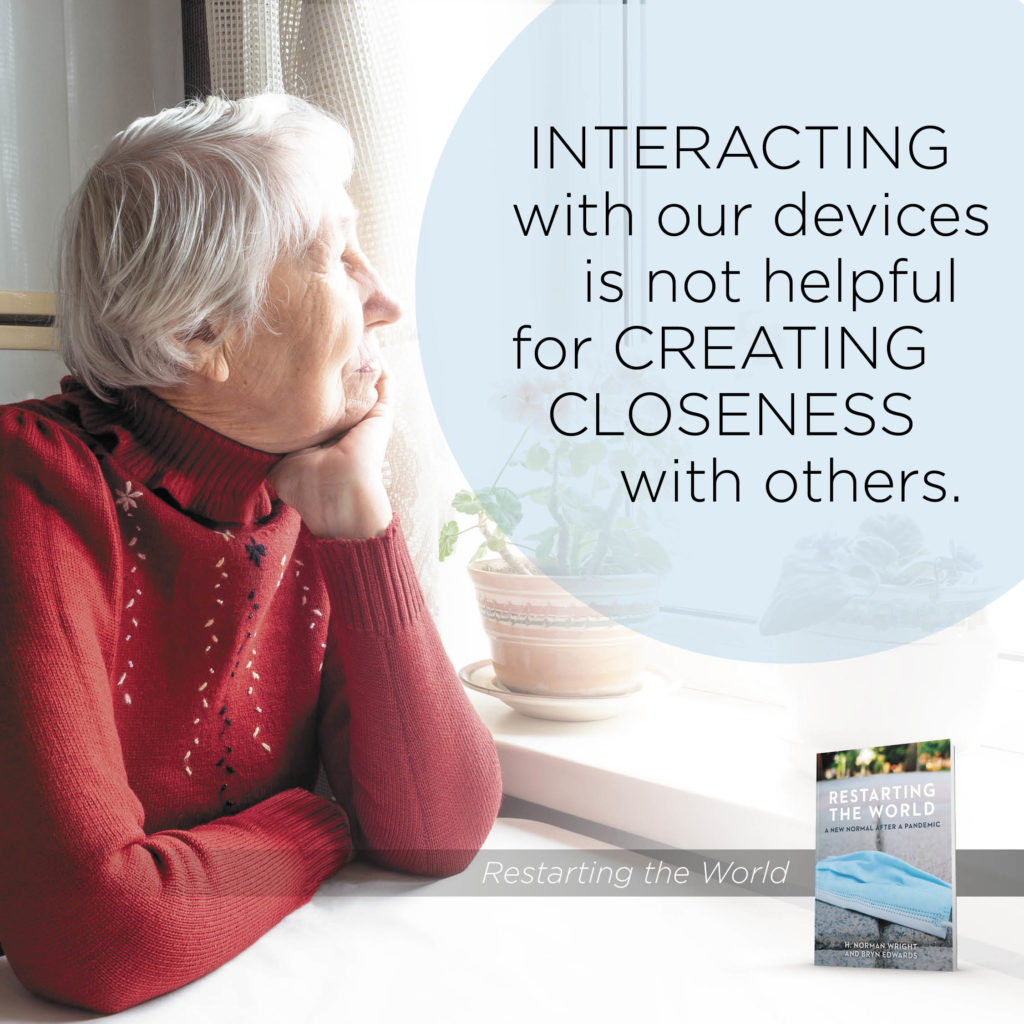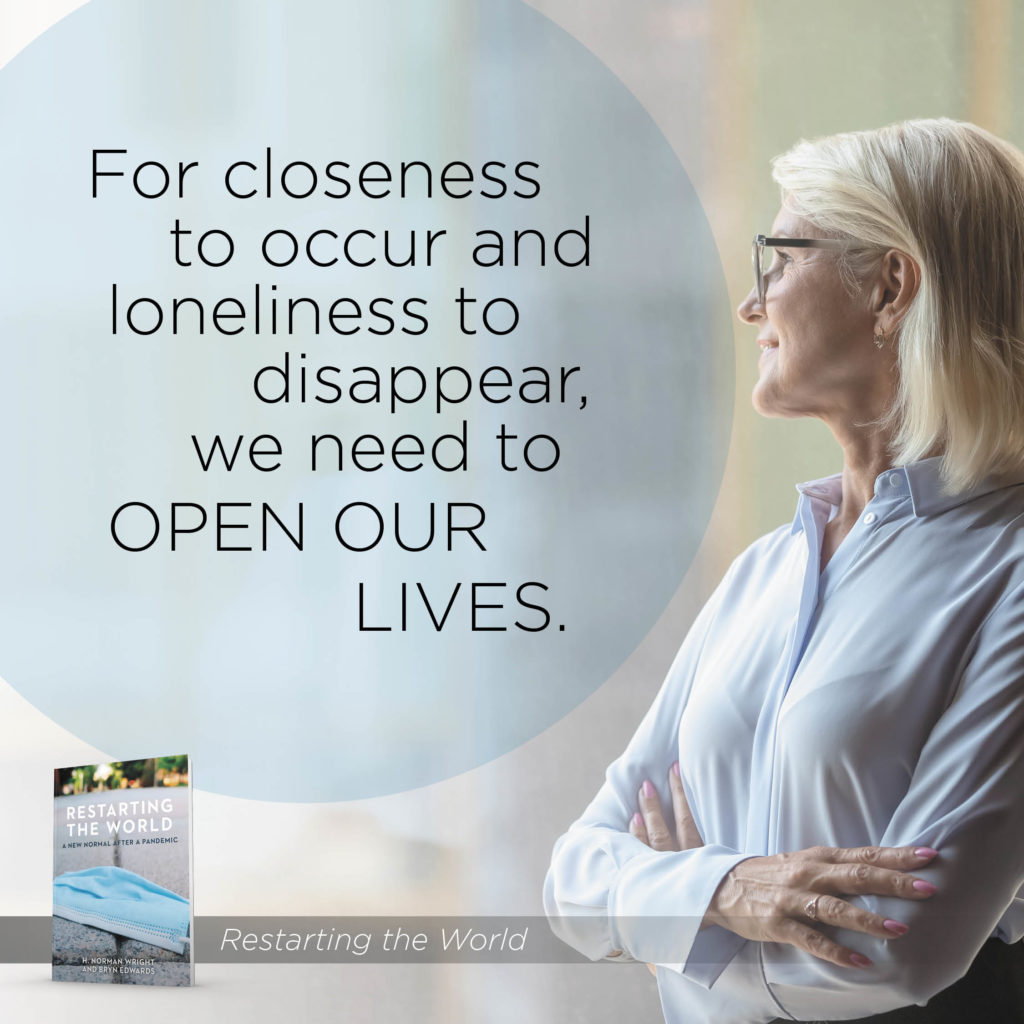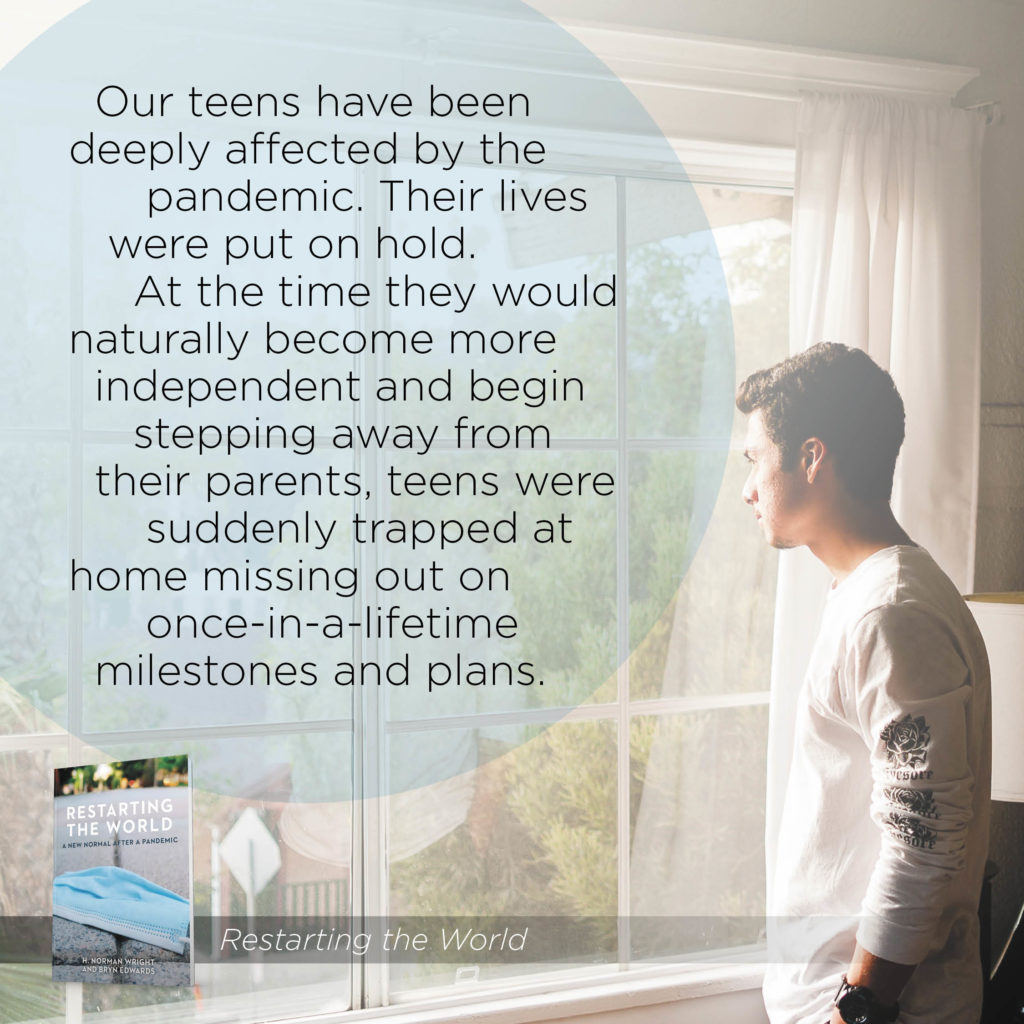Restarting the World sample chapter
about
The results are positive. The plane crashes. The pandemic hits. Your world—maybe even the whole world comes to an abrupt halt. How do you keep going? How do you process though the emotions? And more than that, how do you find a new normal in the world you emerge into?
The world may be restarting and opening its doors, but the effects of the grief, isolation, anxiety, and anger are anything but over.
In this brief but powerful book, Dr. H Norman Wright, Christian grief and trauma therapist, helps readers to process through the emotional toll that the pandemic shut-down has taken, and gives readers practical tips, tools, and exercises to not only re-enter the world stronger, but better prepared to handle the unexpected.
Even in the midst of chaos, we can find still hope and find peace. “Now may the God of hope fill you with all joy and peace as you believe, so that you may overflow with hope by the power of the Holy Spirit,” (Romans 15:13, CSB).
press inquiries
For press inquiries regarding Restarting the World,
please contact [email protected]

